- Home
- James Rollins
The Last Oracle: A Sigma Force Novel Page 9
The Last Oracle: A Sigma Force Novel Read online
Page 9
Before he could ponder this contradiction, he pulled his other hand into view. Or rather tried to. His other arm ended in a stump at the wrist. His heart thudded harder in shock. He must’ve been in a horrible accident. His remaining hand trailed across the tender sutures behind his ear, as if trying to read Braille. Obviously a recent surgery. But his wrist was calloused and long healed. Still, he could almost sense his missing fingers. Felt them curl into a phantom fist of frustration.
The taller boy stepped back from the bed. “Come,” he said in English.
From the clandestine nature of his release and furtive actions of his liberators, he sensed some amount of danger. Dressed in a thin hospital gown, he rolled his feet to the cold tiled floor. The room tilted with the motion.
Whoa…
A small groan of nausea escaped him.
“Hurry,” the taller boy urged.
“Wait,” he said, gulping air to settle his stomach. “Tell me what is going on.”
“No time.” The tall boy stepped away. He was gangly, all limbs. He attempted to sound authoritative, but the cracking in his voice betrayed both his youth and his terror. He touched his chest, introducing himself. “Menia zavut Konstantin. You must come. Before it is too late.”
“But I…I don’t…”
“Da. You are confused. For now, know your zavut is Monk Kokkalis.”
Making a half-scoffing noise, he shook his head. Monk Kokkalis. The name meant nothing to him. As he attempted to voice his disagreement, to correct the mistake, he realized he had no ammunition, only a blank where his name normally resided. His heart clutched into a strained knot. Panic narrowed his vision. How could that be? He fingered the sutures again. Had he taken a blow to the head? A concussion? He sought for any memory beyond waking up here in this room, but there was nothing, a wasteland.
What had happened?
He stared again at the EKG monitor still connected to his chest by taped lead wires. And over in the corner stood a blood pressure monitor and an I.V. pole. So if he could name what lay around him, why couldn’t he remember his own name? He searched for a past, something to anchor him. But beyond waking up here in this dark room, he had no memory.
The smaller of the two boys seemed to sense his growing distress. The child stepped forward, his blue eyes catching the flash of the penlight. Monk—if that was really his name—sensed the boy knew more about him than he did himself. Proving this, the child seemed to read his heart and spoke the only words that would stir him from the bed.
The boy held up a small hand toward him, his fingers splayed, punctuating his need. “Save us.”
5
September 5, 9:30 P.M.
Washington, D.C.
“Chernobyl?” Elizabeth asked. “What was my father doing in Russia?”
She stared across the coffee table at the two other men. She was seated in an armchair with her back to a picture window that overlooked the woods of Rock Creek Park. They had been driven to this location after escaping the museum. Gray had used the words safe house, which had done little to make her feel safe. It was like something out of a spy novel. But the charm of the house—a two-story craftsman built of clinker brick and paneled in burnished tiger oak—helped calm her.
Somewhat.
She had washed up upon arriving, taking several minutes to scrub her hands and splash water on her face. But her hair still smelled of smoke, and her fingernails were still stained with paint. Afterward, she had sat for five minutes on the commode with her face in her palms, trying to make sense of the last few hours. She hadn’t known she was crying until discovering her hands were damp. It was all too much. She still hadn’t had a chance to process the death of her father. Though she didn’t doubt the truth of it, she had not come to accept the reality.
Not until she had some answers.
It was those questions that finally drew her out of the bathroom.
She eyed the newcomer across a table set with coffee. The man was introduced as Gray’s boss, Director Painter Crowe. She studied him. His features were angular, his complexion tanned. As an anthropologist, she read the Native American heritage in the set of his eyes—despite their glacial blue hue. His dark hair ran with a small streak of white over one ear, like a heron feather tucked there.
Gray shared the sofa with him, crouched and sifting through a stack of papers on the table.
Before anyone could answer her question, Kowalski returned from the kitchen in his stocking feet. His freshly polished shoes rested on the cold hearth. “Found some Ritz crackers and something that looked like cheese. Not sure. But they had salami.”
He leaned to place the platter in front of Elizabeth.
“Thank you, Joe,” she said, grateful for the simple and real gesture amid all the mystery.
The big man blushed a bit around the ears. “No problem,” he grumbled as he straightened. He pointed to the platter, seemed to forget what he was going to say—then with a shake of his head, retired to inspect his shoes again.
Painter sat up straighter, drawing back Elizabeth’s attention. “As to Chernobyl, we don’t know why your father went there. In fact, we ran his passport. There’s no record of him visiting Russia, or for that matter, ever reentering the United States. We can only assume he was traveling with a false passport. The last record we have of his travels was from five months ago. He flew to India. That’s the last we know about his whereabouts.”
Elizabeth nodded. “He travels there often. At least twice a year.”
Gray shifted straighter. “To India. Why?”
“For a research grant. As a neurologist, he was studying the biological basis for instinct. He worked with a professor of psychology at the University of Mumbai.”
Gray glanced to his boss.
“I’ll look into it,” Painter said. “But I had already heard of your father’s interest in instinct and intuition. In fact, it was the basis for his involvement with the Jasons.”
This last was directed at Gray, but Elizabeth stiffened at the mention of the organization. She could not hide her distaste. “So you know about them—the Jasons.”
Painter glanced to Gray, then back to her. “Yes, we know your father was working for them.”
“Working? More like obsessed with them.”
“What do you mean?”
Elizabeth explained how working with the military grew into an all-consuming passion with her father. Each summer, he’d disappear for months at a time, sometimes longer. The rest of his year was devoted to his responsibilities as a professor at M.I.T. As a result, he was seldom home. It strained relations between her parents. Accusations grew into fights. Her mother came to believe her father was having an affair.
The tension at home only drove her father farther away. A rocky marriage became a ruin. Her mother, already a borderline alcoholic, tipped over the edge. When Elizabeth was sixteen, her mother got drunk and crashed the family’s SUV into the Charles River. It was never determined whether it was an accident or a suicide.
But Elizabeth knew who deserved the brunt of the blame.
From that day forward, she seldom spoke to her father. Each retreated into their own world. Now he was gone, too. Forever. Despite her loss, she could not discount a burning seed of anger toward him. Even his strange death left so much unanswered.
“Do you think his involvement with the Jasons had anything to do with his death?” she finally asked.
Painter shook his head. “It’s hard to say. We’re still early in the investigation. But I was able to discover which classified military project was assigned to your father. It was called Project—”
“—Stargate,” Elizabeth finished for him. She took some satisfaction from the man’s startled expression.
Kowalski sat up straighter by the fireplace. “Hey, I saw a movie about that…had aliens and stuff, right?”
“Not that Stargate, Joe,” she answered. “And don’t worry, Mr. Crowe. My father didn’t breech his top secret clearance. I’d heard
my father mention the project by name a couple of times. Then a decade later, I read the declassified reports from the CIA, released through the Freedom of Information Act.”
“What’s this project about?” Gray asked.
Painter nodded at the pile of papers on the table. “The full details are there, going back to the Cold War. It was officially overseen by the country’s second-largest think tank, the Stanford Research Institute, which down the line would help develop stealth technologies. But back in 1973, the institute was commissioned by the CIA to investigate the feasibility of using parapsychology to aid in intelligence gathering.”
“Parapsychology?” Gray raised an eyebrow.
Painter nodded. “Telepathy, telekinesis…but mostly they concentrated on remote viewing, using individuals to spy upon sites and activities from vast distances using only the power of their minds. Sort of like telepathy at a distance.”
Kowalski snorted his derision from across the room. “Psychic spies.”
“As crazy as that might sound, you have to understand that during the darkest days of the Cold War, any perceived advantage by the Soviets had to be matched in turn by our own intelligence. Any technological gap could not be tolerated. The Soviet Union was pulling out all the stops. To the Soviets, parapsychology was a multidisciplinary field, encompassing bionics, biophysics, psychophysics, physiology, and neurophysiology.”
Painter nodded to Elizabeth. “Like the work your father was performing on intuition and instinct. The neurophysiology behind it.”
Elizabeth glanced at Gray. From the wary look in his eyes, he seemed hardly convinced, but he continued listening silently. So she did the same.
“According to reports by the CIA, the Soviets had begun producing results. Then in 1971, the Soviet program suddenly went into deep-black classification. Information dried up. All we could ascertain was that research continued in Russia, funded by the KGB. We had to respond in kind or be left behind. So the Stanford Research Institute was commissioned to investigate.”
“And what were their results?” Gray asked.
“Mixed at best,” Painter acknowledged.
Elizabeth had also read the declassified reports. “In truth, there was little success with the project.”
“That’s not entirely true,” Painter countered. “Official reports showed that remote viewing produced useful results fifteen percent of the time, which was above statistical probability. And then there were the exceptional cases. Like a New York artist, Ingo Swann. He was able to describe buildings in fine detail when given mere longitude and latitude coordinates. His hits, according to some officials, rose up to the eighty-five percent range.”
Painter must have read the continuing doubt in both their eyes. He tapped the stack of papers. “The Stanford Research Institute’s results were replicated by testing at Fort Meade and at the Princeton Engineering Anomalies Research Laboratory. In addition, there were several prominent successes. One of the most cited cases involved the kidnapping and rescue of Brigadier-General James Dozier. According to the physicist in charge of the project, one remote viewer ascertained the name of the town where the general was being held, while another described details of the building, all the way down to the bed where he was chained. Such results are hard to readily dismiss.”
“Yet it was,” Elizabeth said. “From my understanding, the research stopped in the mid-1990s. The program was dismantled.”
“Not entirely,” Painter added cryptically.
Before he could explain, Gray interrupted. “But back to the beginning, what does all this have to do with the Jasons?”
“Ah, I was just going to get to that. It seems that the Stanford Research Institute, like the Soviets, had begun to broaden the parameters of their research, extending it into other scientific disciplines.”
“Like neurophysiology,” Gray said. “Dr. Polk’s work.”
Painter nodded. “While the project was deeply classified, they did outsource to two Jasons who were doing parallel research. One of them was your father, Elizabeth. The other was Dr. Trent McBride, a biomedical engineer in brain physiology.”
Elizabeth knew that name. She remembered late-night visits, her father sequestering himself with strangers in his study, including Dr. McBride. He was hard to forget with his loud, boisterous voice, but in a good-hearted way. He also brought her gifts when she was younger. First editions of Nancy Drew.
“I attempted to contact Dr. McBride,” Painter continued. “Only to learn that no one’s heard from him in the last five months.”
Elizabeth felt a cold chill. Five months. “The same time my father flew to India.”
She shared a worried glance with Gray.
What was going on?
9:40 P.M.
Yuri Raev exited the elevator on the subbasement floor of the research facility. After getting the phone call, it had taken him forty-five minutes to reach the Walter Reed Army Institute of Research in Maryland. The building housed half a million square feet of laboratory space, much of it designated for BL-3 biohazard research, meaning it dealt with all manner of infectious diseases.
Yuri had used the panic code—Pandora—to reach the Jasons. It had taken another ten minutes to patch an alert to those he sought, an inner cabal of the organization who had cooperated with the Russians on the project for the greater good of both nations. Yuri had hoped to get the Jasons working on his behalf, to keep Sasha out of Mapplethorpe’s hands. The Jasons, with their various scientific backgrounds, understood the delicacy it took in handling the child, both physiologically and psychologically.
Mapplethorpe on the other hand was all about brinkmanship, political ambitions, and blind self-interest. Yuri didn’t trust the man.
With Sasha missing, Yuri needed allies on American soil.
He’d been instructed to meet Dr. James Chen, a neurologist and a member of the inner circle, to plan a strategy.
They would be joined by another.
Someone who could help, he was cryptically told.
Yuri was given specific directions and clearance to the location of the rendezvous. He started down the hallway. At this hour, all the doors were closed. Few laboratories were down at this level. As he walked, bleach burned his nose and masked a muskier scent. Behind one door, he heard a familiar soft hoot of something simian. Here was where the facility must house its live-animal research subjects, deserted of personnel at this hour.
He checked the room number.
B-2 340.
He found the door with a frosted glass panel and knocked. A shadow passed across the pane, and the door opened promptly.
“Dr. Raev. Thank you for coming.”
Yuri barely got a glimpse of the young Asian man as he turned away. He wore a white laboratory coat over blue denim pants. A pair of eyeglasses rested atop his head, as if forgotten there. The room held a utilitarian table along one wall, and a bank of stainless-steel cages filled the opposite side. A few whiskered black noses poked between the bars. The scritch-scratch of tiny nails whispered from the cages. Laboratory rats. Only these were hairless, except for their whiskers.
Dr. Chen led him through an open back door. There he found a cluttered office: a steel desk stacked with journals, a whiteboard jotted with boxed to-do lists, and a bookcase crammed with glass specimen jars.
Yuri was surprised to find a familiar figure hulked behind the desk, a cell phone at his ear. The man, edging toward his midfifties, demonstrated his Scottish heritage in his massive frame, ruddy cheeks, and a red-and-gray beard tidily trimmed close to a jutting jaw. He was the head of the cabal of Jasons assigned to assist the Russians—and also a colleague and longtime friend of Archibald Polk.
Dr. Trent McBride.
“He’s just arrived,” the man said into the phone with a nod toward Yuri. “I’ll brief everyone in an hour.”
McBride closed his cell phone, stood, and held out his hand. “I’ve been updated on your situation, Yuri. Considering the girl’s fragile state, this is a
top priority. We’ll do what we can to help find the child.”
Yuri shook his hand and sat down. Although startled, he felt relieved to find McBride here. Beneath his good-natured bravado, the man had a sharp and practical mind.
“So then you understand,” Yuri said, “how vital it is that we acquire her again? And soon.”
He nodded. “How many hours can the girl survive without her medication?”
“Thirty-two.”
“And her last injection?”
“Seven hours,” he answered grimly.
That leaves Sasha only a little over a day to be found.
“Then we’ll have to move fast,” McBride said. “As you might suspect, Mapplethorpe had already called me. In fact, that’s why I’m here myself.”
“I thought you were in Geneva. Hadn’t you decided to keep a low profile? To keep hidden?”
“Just until matters with Archibald settled out.” His eyes hardened slightly at Yuri. “Which it seems it has. Though the outcome could have been better. He was my friend.”
“You know, as well as I, that Dr. Polk would not have survived another few days. I had to do what was necessary.”
McBride seemed little mollified.
“And if you recall,” Yuri added, “I voted against approaching Dr. Polk in the first place.”
McBride sagged back into his chair with a squeak. “I truly thought Archibald would be more amenable, especially once he saw the project firsthand. After all, it was an extension of his life’s work. And considering the threat he posed, the only other option was—”
Again a sad shrug.
Dr. Polk had been treading too close to the heart of the research project. Closer than even McBride knew. It left them only two choices: recruit him or eliminate him.

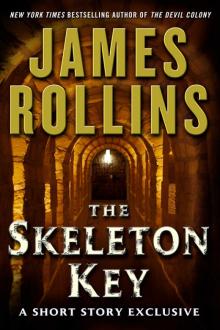 The Skeleton Key
The Skeleton Key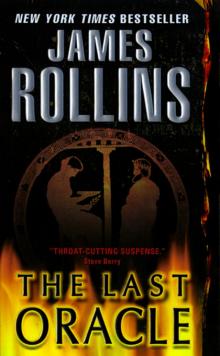 The Last Oracle
The Last Oracle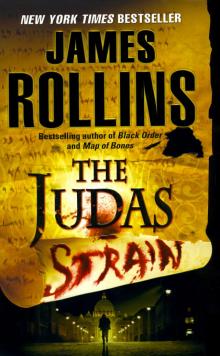 The Judas Strain
The Judas Strain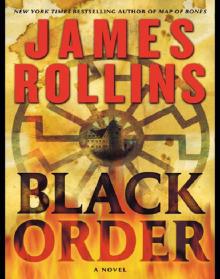 Black Order
Black Order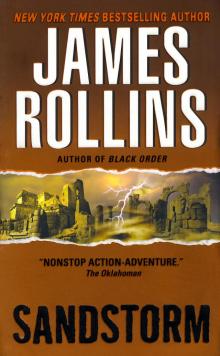 Sandstorm
Sandstorm Ghost Ship
Ghost Ship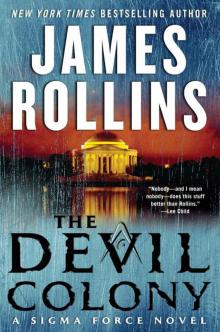 The Devil Colony
The Devil Colony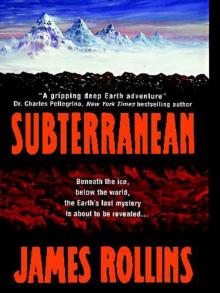 Subterranean
Subterranean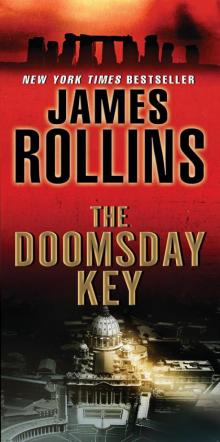 The Doomsday Key
The Doomsday Key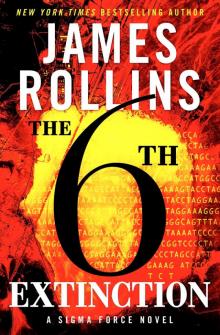 The 6th Extinction
The 6th Extinction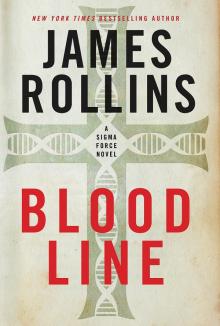 Bloodline
Bloodline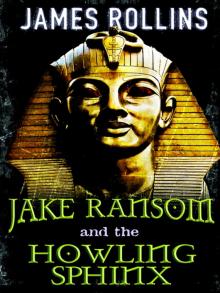 Jake Ransom and the Howling Sphinx
Jake Ransom and the Howling Sphinx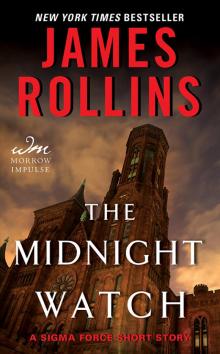 The Midnight Watch
The Midnight Watch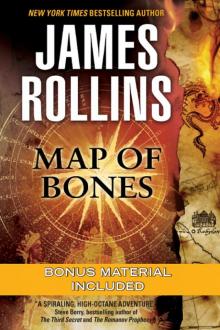 Map of Bones
Map of Bones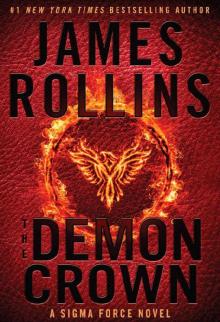 The Demon Crown
The Demon Crown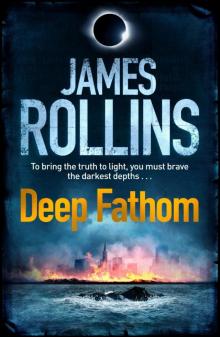 Deep Fathom
Deep Fathom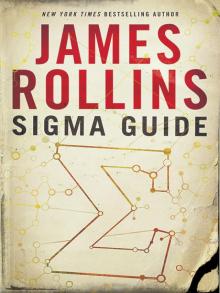 Sigma Guide
Sigma Guide Kowalski's in Love
Kowalski's in Love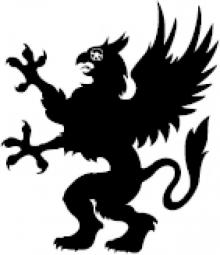 Jake Ransom and the Skull King's Shadow
Jake Ransom and the Skull King's Shadow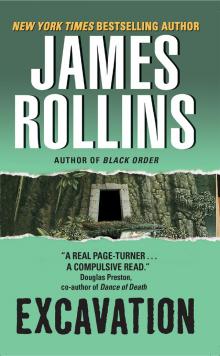 Excavation
Excavation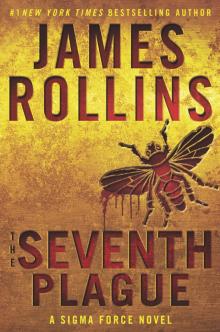 The Seventh Plague
The Seventh Plague Altar of Eden
Altar of Eden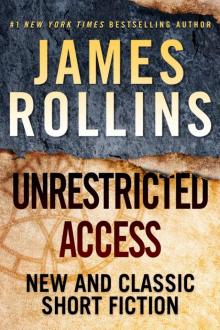 Unrestricted Access: New and Classic Short Fiction
Unrestricted Access: New and Classic Short Fiction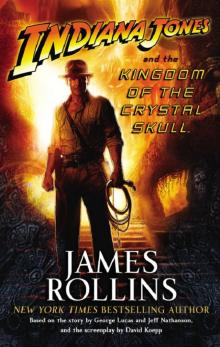 Indiana Jones and the Kingdom of the Crystal Skull
Indiana Jones and the Kingdom of the Crystal Skull Crucible
Crucible The Eye of God
The Eye of God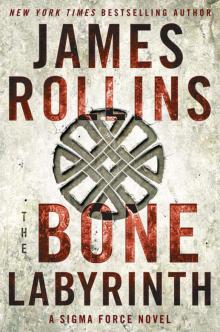 The Bone Labyrinth
The Bone Labyrinth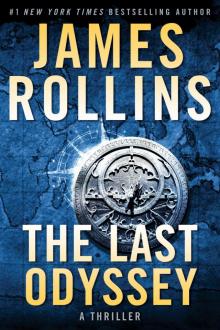 The Last Odyssey: A Thriller
The Last Odyssey: A Thriller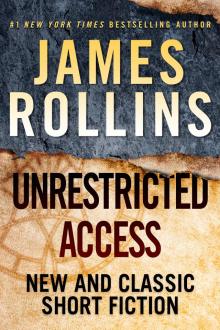 Unrestricted Access
Unrestricted Access Amazonia
Amazonia Blood Brothers: A Short Story Exclusive
Blood Brothers: A Short Story Exclusive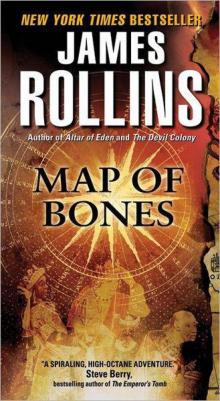 Map of Bones: A Sigma Force Novel
Map of Bones: A Sigma Force Novel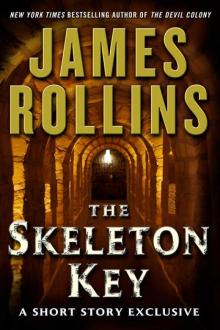 The Skeleton Key (sigma force)
The Skeleton Key (sigma force)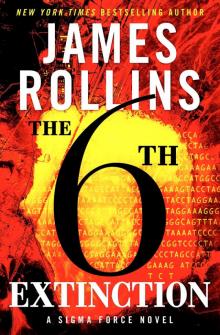 Sigma Force 10 - The Sixth Extinction
Sigma Force 10 - The Sixth Extinction Innocent Blood
Innocent Blood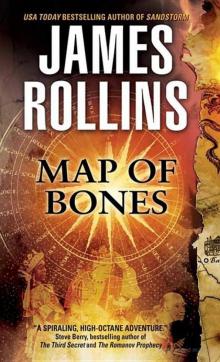 Map of Bones sf-2
Map of Bones sf-2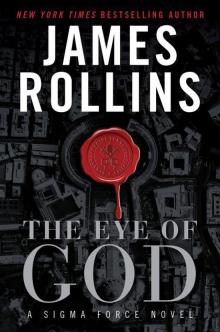 The Eye of God: A Sigma Force Novel
The Eye of God: A Sigma Force Novel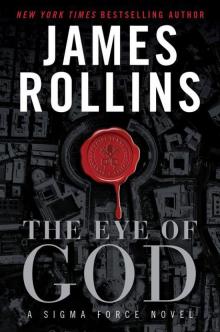 The Eye of God: A Sigma Force Novel sf-9
The Eye of God: A Sigma Force Novel sf-9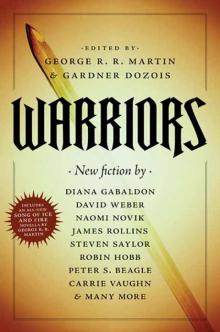 The Pit
The Pit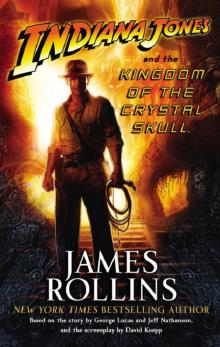 Indiana Jones and the The Kingdom Of The Crystal Skull
Indiana Jones and the The Kingdom Of The Crystal Skull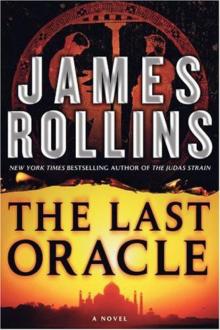 The Last Oracle (2008) sf-5
The Last Oracle (2008) sf-5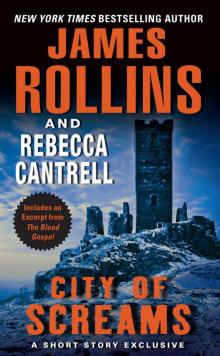 City of Screams
City of Screams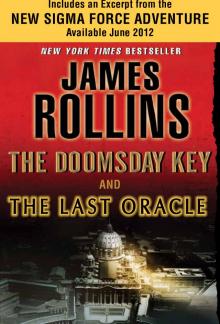 The Doomsday Key and The Last Oracle with Bonus Excerpts
The Doomsday Key and The Last Oracle with Bonus Excerpts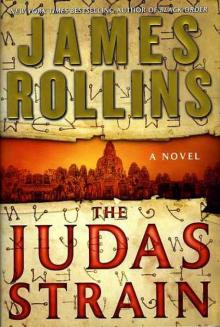 The Judas Strain sf-4
The Judas Strain sf-4 Blood Infernal
Blood Infernal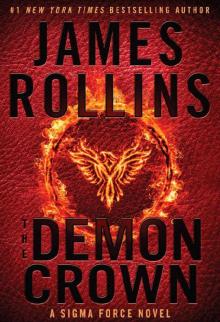 The Demon Crown: A Sigma Force Novel
The Demon Crown: A Sigma Force Novel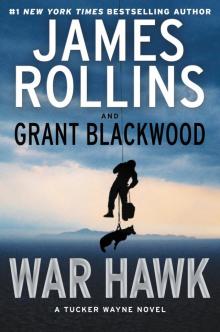 War Hawk: A Tucker Wayne Novel
War Hawk: A Tucker Wayne Novel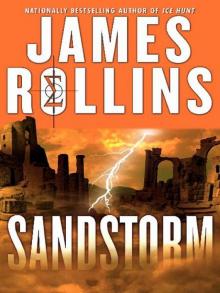 SANDSTORM sf-1
SANDSTORM sf-1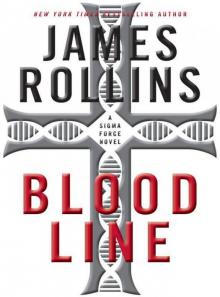 Bloodline: A Sigma Force Novel
Bloodline: A Sigma Force Novel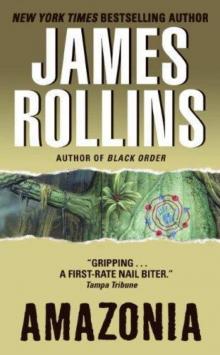 Amazonia: a novel
Amazonia: a novel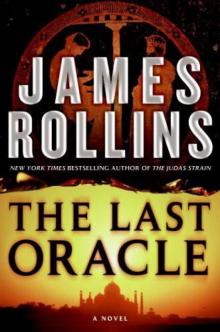 The Last Oracle: A Sigma Force Novel
The Last Oracle: A Sigma Force Novel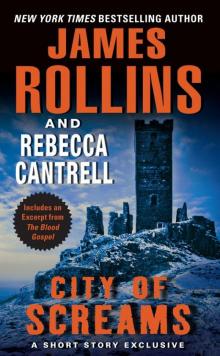 City of Screams (the order of the sanguines)
City of Screams (the order of the sanguines)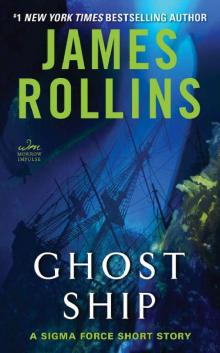 Ghost Ship: A Sigma Force Short Story
Ghost Ship: A Sigma Force Short Story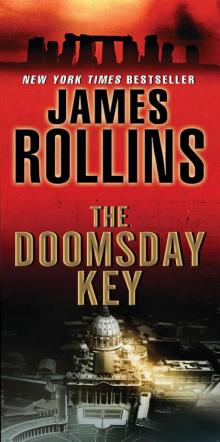 The Doomsday Key: A Sigma Force Novel
The Doomsday Key: A Sigma Force Novel